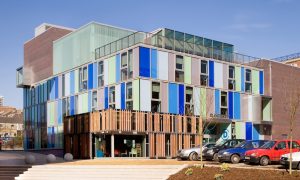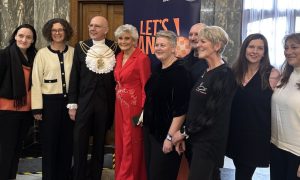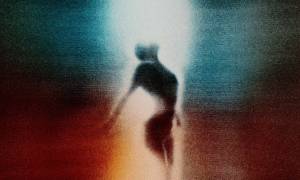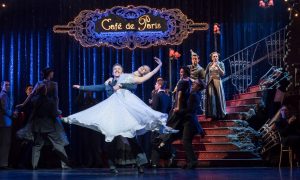Hip hop, as a set of art forms and a value system, is in its 50th anniversary year. With appearances on television dance shows, and with breaking set to be part of the 2024 Olympics, one could see a hip hop “moment” at hand. Yet, it’s always been a widespread driver of worldwide art and culture. The bar on the quality of creative output has only been rising higher.
Enter the forthcoming Academy Breakin’ Convention, a hip hop theatre course, based in the new Sadler’s Wells East and set to open in 2024. Founders of the academy hope to see it further legitimize hip hop theatre as a rigorous sub-sector of the arts industry, nurture the next generation of artists within that subsector, and guide it all forward into a vibrant, impactful future. Dance Informa speaks with Artistic Director Jonzi D and Head of Academy Niquelle LaTouche, to learn more about these visions and more.
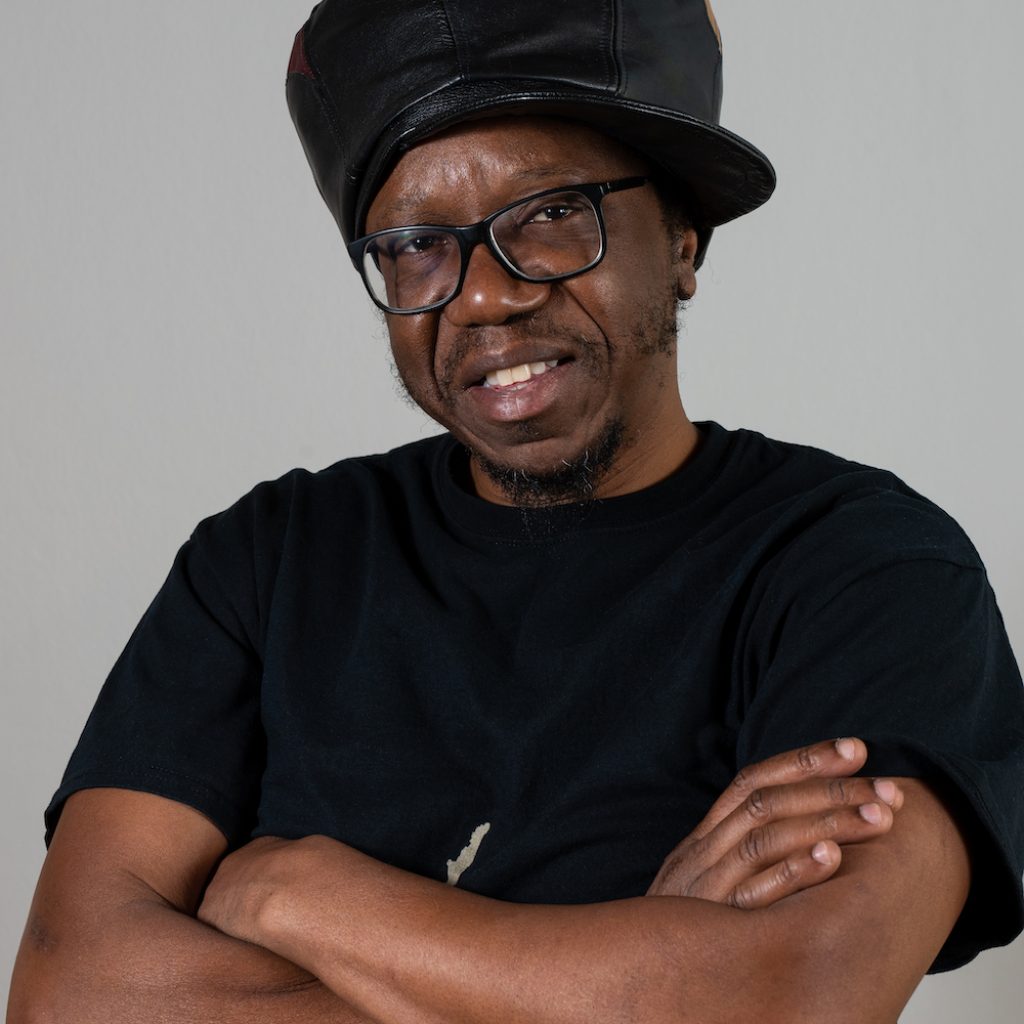
First, let’s lay out the land a bit. Jonzi notes how this academy is coming together in an exciting context. Hip hop theatre is rising in popularity, particularly in Europe and Asia. The style is reaching some incredible heights of artistry — from graffiti set design, to astoundingly gymnastic feats in break dancing, to even film to accompany those more classically hip hop elements.
“Where theatre is concerned, it’s becoming the new modern dance,” Jonzi believes. In a larger public sense, it’s “always been interwoven” there, “but it’s getting more respect and limelight…it’s seen as more established after it’s lasted so long,” argues LaTouche. Media messages and public narratives aside, hip hop remains the most influential force on global culture: inarguably commercially, and arguably artistically.
Structure and specialities
Jonzi explains how the Academy Breakin’ Convention curriculum will bring together “all of the elements that comprise hip hop.” Those elements include dance (breaking, popping and social dance), graffiti, rap, emcee, music production and DJing. Expertise in each of these forms will guide the curriculum. Within a two-year academic tenure, students will learn all of those forms in their first year. In their second, they will begin to specialise on a few elements.
That structure will “fill in the gaps of the larger hip hop culture for students who might be, for example, primarily a b-boy or b-girl,” Jonzi notes. At the same time, students will come out of the academy with tools to continue to refine and deepen their practice in at least two of these forms. LaTouche explains how they hope to see these students become “polymaths”, proficient in multiple artistic skills. One could call that a lofty goal, yet it’s not unprecedented; Jonzi points to musical theatre academies there.
The academy will be based right in a Sadler’s Wells theatrical venue – similar to London Contemporary Dance School’s model. The consistent exposure to current professional work will be another important ingredient in the students’ development, Jonzi believes.
…and students
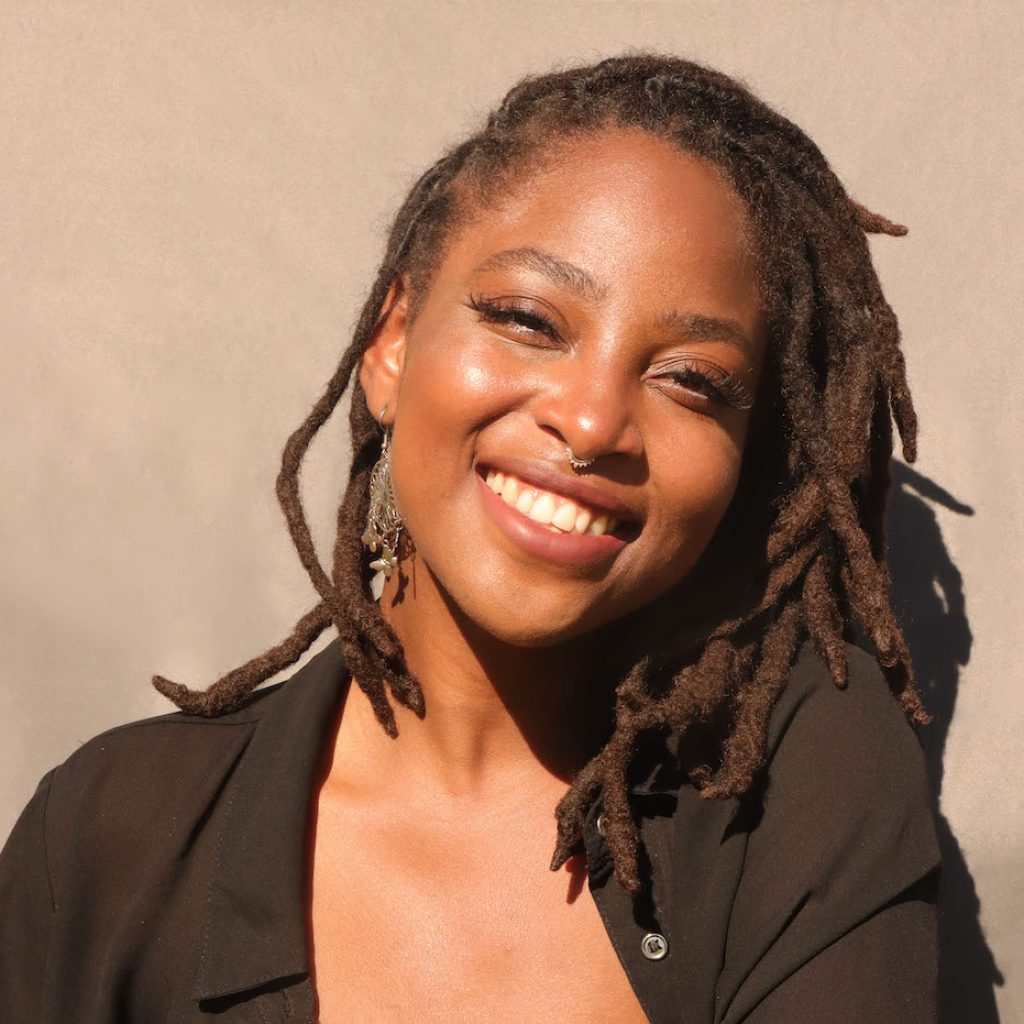
Academy Breakin’ Convention is currently accepting applications from prospective students ages 16-19. Jonzi believes that starting students at this young age is crucial – in fact, he’d love to see even younger students educated in hip hop art and culture. LaTouche underscores how current 16-19-year-olds lived through years of lockdown. From that, they lost a lot of typical teenage experience and development.
The academy will guide students in a “holistic practice,” equipping them with tools to manage lockdown-induced challenges: “soft-skills to build confidence and be able to go inwards, to be able to talk and connect with people, to hold space,” La Touche shares. “The spirit needs nurturing.” She hopes to see students develop abilities to stay grounded in what they believe in, but also engage with opposing views – to “hold discourse and complex ideas.” The academy will nurture artists as whole people, ready to be part of dynamic communities and a motley wider world.
The school will nurture the introspection necessary for students to figure out who they are and what they want to do – as opposed to just following the “pipeline of school to work” simply because it’s what they’ve been told they’re “supposed” to do. “Lockdown positioned artists in a different place for how they can make us empathize and feel something. The students will be very aware of that power,” LaTouche notes.
The students will additionally leave the program with a formal qualification: a Level 3 Extended Diploma in Performance and Production, specific to hip hop theatre. To LaTouche, that’s a “way for the world to know that this person is qualified in something that has respect…it’s acknowledging what was already there.” Also important to her is that students gain basic working world skills, down to the nitty-gritty of doing one’s taxes. These are all important skills in an artist’s toolkit.
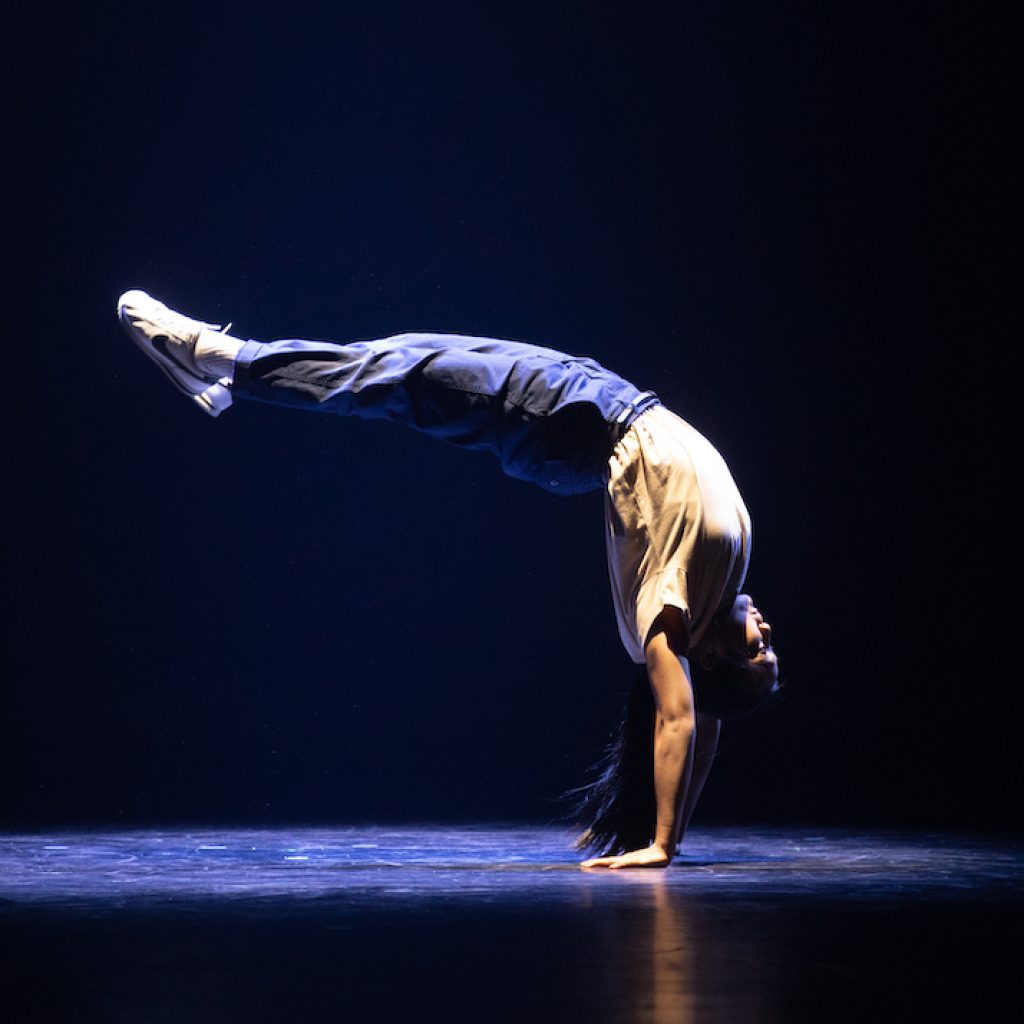
Challenges, cultural assets and key values
Asked about challenges involved with building a whole new arts education entity, Jonzi notes the detail and rigor involved with designing a multi-pronged education. Both he and LaTouche acknowledge that there will be a lot of learning and refining as the academy’s operations continue. They see a lot of potential to further hone pedagogical and artistic practice.
LaTouche feels prepared to meet the challenges that might come the way of this fledgling school; “coming from an arts and education background, I’m in a great position to translate between those two worlds.” She also notes that they have key values of hip hop – such as community and inclusivity – on their side. “It’s a village effort,” she quips.
For example, no one person has designed the curriculum – rather, they have a curriculum team. After all, everyone is seen and included in the cypher. LaTouche is clear that they’ve formed curriculum with such hip hop culture values at the center. “If this is going to work, no one is going to be left out.”
That includes the economically disadvantaged, LaTouche explains; students will attend free of charge. A unique feature of our new Sadler’s Wells East building is the open dance floor, and we hope to expand the organisation’s programming for the hip hop community to be included in this. Students will also engage with members of the public through an open dance floor. “We want them to feel attuned to the community around them,” LaTouche affirms. “Hip hop culture is embracing of all, I’d like to think. This academy can be a place to foster all of that,” Jonzi adds.
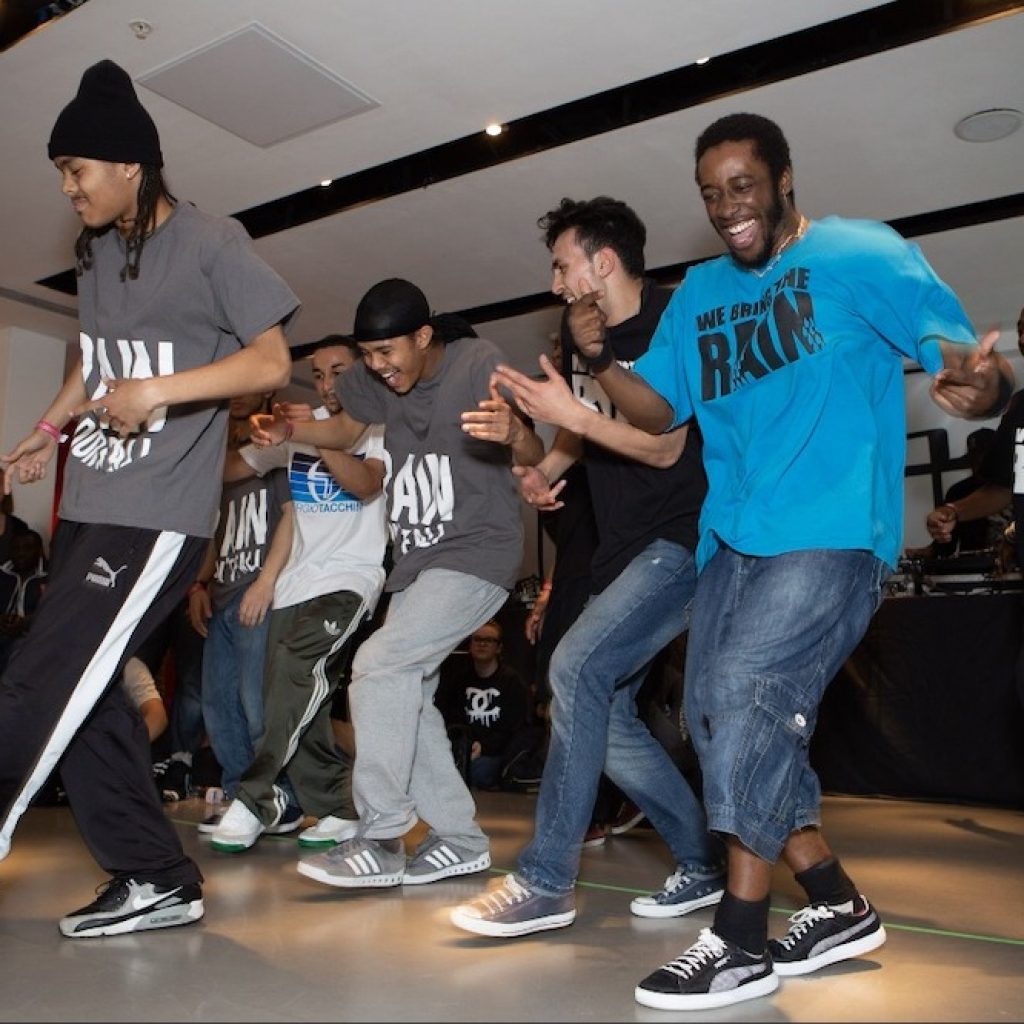
Sadler’s Wells, for its part, has never before had an educational entity under their umbrella. This new venture has a lot of potential for their own development as an arts organization, Jonzi and LaTouche both think. “This is an opportunity for Sadler’s Wells to open up who is welcome in a theater…to create more space and open more possibilities,” LaTouche affirms. She also notes how lockdowns led to many theatre spaces shutting down. Sadler’s Wells is positioned to open up sorely-needed space for creative practice.
Impact into an exciting future
All in all, the academy’s impact will lie in the impact that its students will have. ‘It’s impossible for the students to learn it all in two years….it’s just the start for them,” says Jonzi – the start of their artistic path. The variety of artistic elements that they’ve learned opens up many possibilities. For instance, emceeing proficiency could even lead to work in screenwriting, Jonzi believes.
LaTouche sees these elements as “language tools.” The more language tools one has, “the more people they can speak with,” she asserts: in relationship-building, collaboration, leadership, advocacy (for oneself and others), and much more. Having the tools to resolve conflict and problem-solve, Academy Breakin’ Convention students can carry forward the spirit of hip hop; Jonzi explains how in the face of socioeconomic and interpersonal struggle, hip hop emerged as an alternative to violence.
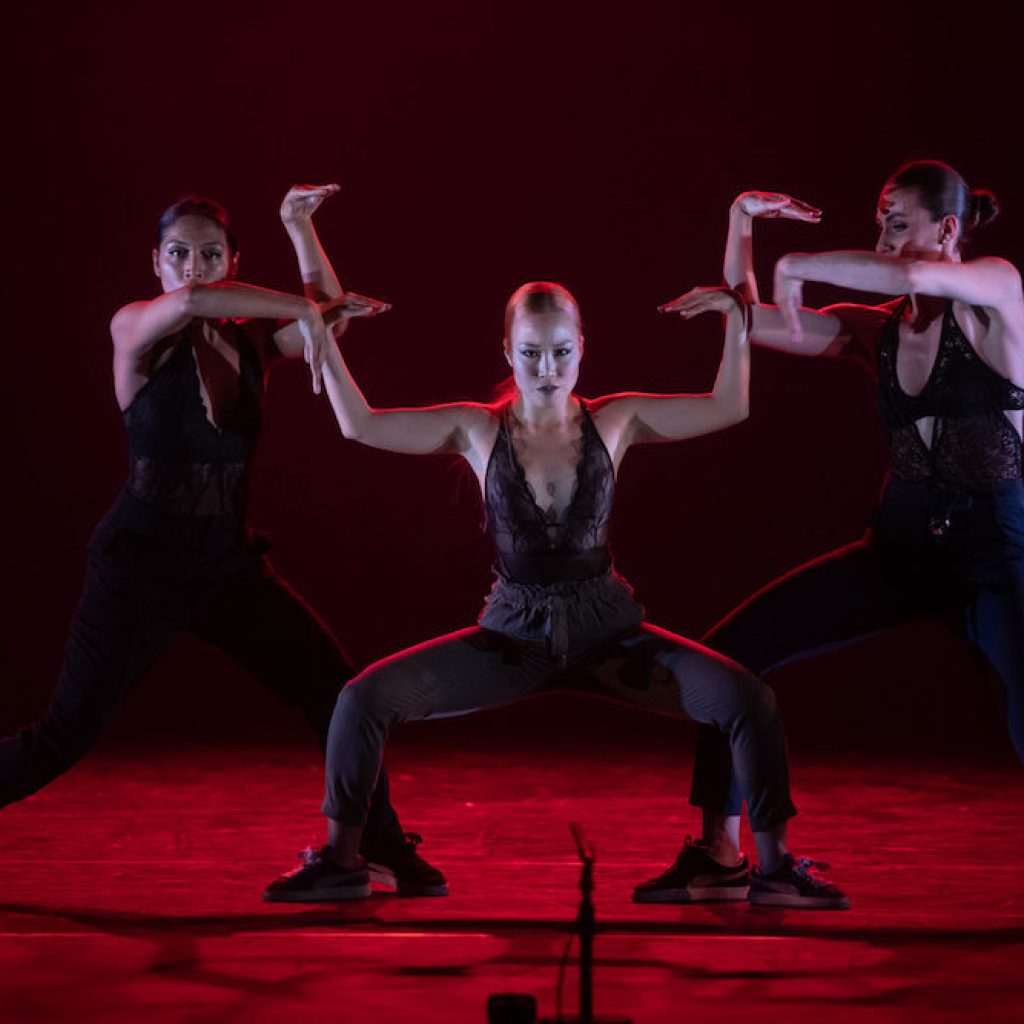
Hip hop artists turned to art, rather than gang activity, to co-exist more harmoniously and to address their communities’ problems. “How do we learn to love and live with each other?” he asks.
Academy Breakin’ Convention students might just have some answers. “I’m really excited about what hip hop could become after they play for two years,” Niquelle says with a smile. They’ll be part of what hip hop will be, and how it will continue to influence the wider world. “We’re changing what excellence can look like,” Jonzi says with his own smile.
For more information, visit academybreakinconvention.com.
By Kathryn Boland of Dance Informa.



